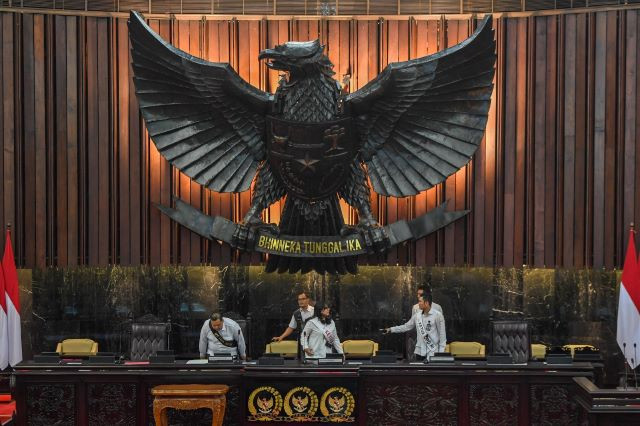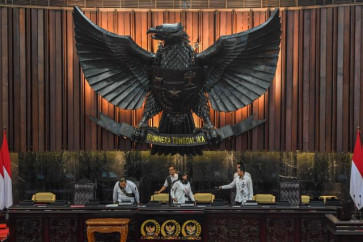Popular Reads
Top Results
Can't find what you're looking for?
View all search resultsPopular Reads
Top Results
Can't find what you're looking for?
View all search resultsPancasila and the crisis of humanity
Pancasila must be reinterpreted in order to effectively fulfill its role as a source of inspiration in addressing the myriad global challenges of today.
Change text size
Gift Premium Articles
to Anyone
The enduring question that confronts every ideology is its continued relevance in the face of an ever-evolving society and era. This inquiry has been directed at communism, socialism, capitalism and the various schools of thought that underpin the development of societies and nations.
The response to this question is simple. The relevance of an ideology does not reside solely within itself, but within its adherents. In this context, the classical theory of the German idealist philosopher, GW Friedrich Hegel, resonates profoundly. Ideas thrive when they engage in dialectical discourse with the diverse array of emerging ideas surrounding them.
Consider communism as a case in point. This ideology has crumbled in Eastern Europe, particularly in the former Soviet Union, and now confronts a severe crisis in North Korea. Yet, observe the situations in China and Vietnam today. There, it remains a steadfast guiding force in the pursuit of nation-building. However, one must not imagine that Chinese and Vietnamese communism today mirrors the tenets upheld by Mao Tse Tung or Ho Chi Minh.
The very same name, but an almost entirely different entity. This is a reinterpreted communism. An ideological entity that has and continues to engage dialectically with pressing issues, ideas and other ideologies, including its arch-nemesis, capitalism. While keeping its traditionally stiff political control, this version of communism is highly accommodating to a market economy.
Capitalism itself has also traversed a similar path. The ideology that has brought prosperity to major world economies for decades has been facing its own crisis. However, its adherents have opened themselves up to adapt and generate fresh reinterpretations of this ideology. Aware of the irrelevance of pure market competition, the invisible hands are no longer left solely to govern and carry out economic activities without state intervention.
Furthermore, in an effort to neutralize its negative externalities like environmental destruction and social inequality, capitalists have introduced new doctrines of sustainable development, green economy and corporate social responsibility. Conglomerates in capitalist nations are now actively engaged in various philanthropic activities, donating to poverty alleviation and healthcare improvement efforts in developing countries.



















